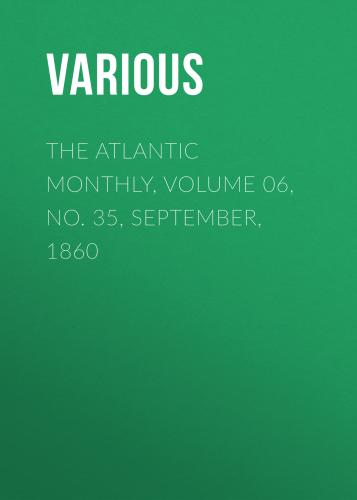And a woman's voice, almost I deem the voice of Elsie Méril, echoes the mother's cry that followed John Leclerc when he fought the beasts at Meaux,—
"Blessed be Jesus Christ, and His witnesses."
So of the Truth were they borne up that day in a blazing chariot to meet their Lord in the air, to be forever with their Lord.
ON A MAGNOLIA-FLOWER
Memorial of my former days,
Magnolia, as I scent thy breath,
And on thy pallid beauty gaze,
I feel not far from death!
So much hath happened! and so much
The tomb hath claimed of what was mine!
Thy fragrance moves me with a touch
As from a hand divine:
So many dead! so many wed!
Since first, by this Magnolia's tree,
I pressed a gentle hand and said,
A word no more for me!
Lady, who sendest from the South
This frail, pale token of the past,
I press the petals to my mouth,
And sigh—as 'twere my last.
Oh, love, we live, but many fell!
The world's a wreck, but we survive!—
Say, rather, still on earth we dwell,
But gray at thirty-five!
SOME NOTES ON SHAKSPEARE
In 1849, the discovery by Mr. Payne Collier of a copy of the Works of Shakspeare, known as the folio of 1632, with manuscript notes and emendations of the same or nearly the same date, created a great and general interest in the world of letters.
The marginal notes were said to be in a handwriting not much later than the period when the volume came from the press; and Shakspearian scholars and students of Shakspeare, and the far more numerous class, lovers of Shakspeare, learned and unlearned, received with respectful eagerness a version of his text claiming a date so near to the lifetime of the master that it was impossible to resist the impression that the alterations came to the world with only less weight of authority than if they had been undoubtedly his own.
The general satisfaction of the literary world in the treasure-trove was but little alloyed by the occasional cautiously expressed doubts of some caviller at the authenticity of the newly discovered "curiosity of literature"; the daily newspapers made room in their crowded columns for extracts from the volume; the weekly journals put forth more elaborate articles on its history and contents; and the monthly and quarterly reviews bestowed their longer and more careful criticism upon the new readings of that text, to elucidate which has been the devout industry of some of England's ripest scholars and profoundest thinkers; while the actors, not to be behindhand in a study especially concerning their vocation, adopted with more enthusiasm than discrimination some of the new readings, and showed a laudable acquaintance with the improved version, by exchanging undoubtedly the better for the worse, upon the authority of Mr. Collier's folio, soon after the publication of which I had the ill-fortune to hear a popular actress destroy the effect and meaning of one of the most powerful passages in "Macbeth" by substituting the new for the old reading of the line,—
"What beast was it, then,
That made you break this enterprise to me?"
The cutting antithesis of "What beast" in retort to her husband's assertion, "I dare do all that may become a man," was tamely rendered by the lady, in obedience to Mr. Collier's folio, "What boast was it, then,"—a change that any one possessed of poetical or dramatic perception would have submitted to upon nothing short of the positive demonstration of the author's having so written the passage.
Opinions were, indeed, divided as to the intrinsic merit of the emendations or alterations. Some of the new readings were undoubted improvements, some were unimportant, and others again were beyond all controversy inferior to the established text of the passages; and it seemed not a little difficult to reconcile the critical acumen and poetical insight of many of the corrections with the feebleness and prosaic triviality of others.
Again, it was observed by those conversant with the earlier editions, especially with the little read or valued Oxford edition, that a vast number of the passages given as emendations in Mr. Collier's folio were precisely the same in Hanmer's text. Indeed, it seems not a little remarkable that neither Mr. Collier nor his opponents have thought it worth their while to state that nearly half, and that undoubtedly the better half, of the so-called new readings are to be found in the finely printed, but little esteemed, text of the Oxford Shakspeare. If, indeed, these corrections now come to us with the authority of a critic but little removed from Shakspeare's own time, it is remarkable that Sir Thomas Hanmer's, or rather Mr. Theobald's, ingenuity should have forestalled the fiat of Mr. Collier's folio in so many instances. On the other hand, it may have been judged by others besides a learned editor of Shakspeare from whom I once heard the remark, that the fact of the so-called new readings being many of them in Rowe and Hanmer, and therefore well known to the subsequent editors of Shakspeare, who nevertheless did not adopt them, proved that in their opinion they were of little value and less authority. But, says Mr. Collier, inasmuch as they are in the folio of 1632, which I now give to the world, they are of authority paramount to any other suggestion or correction that has hitherto been made on the text of Shakspeare.
Конец ознакомительного фрагмента.
Текст предоставлен ООО «ЛитРес».
Прочитайте эту книгу целиком, купив полную легальную версию на ЛитРес.
Безопасно оплатить книгу можно банковской картой Visa, MasterCard, Maestro, со счета мобильного телефона, с платежного терминала, в салоне МТС или Связной, через PayPal, WebMoney, Яндекс.Деньги, QIWI Кошелек, бонусными картами или другим удобным Вам способом.
